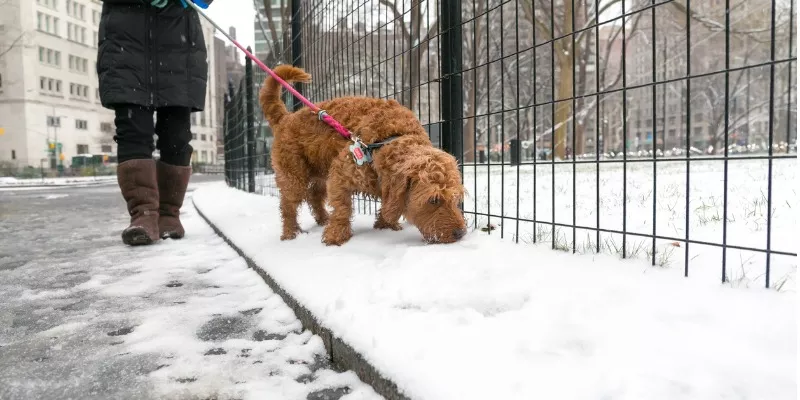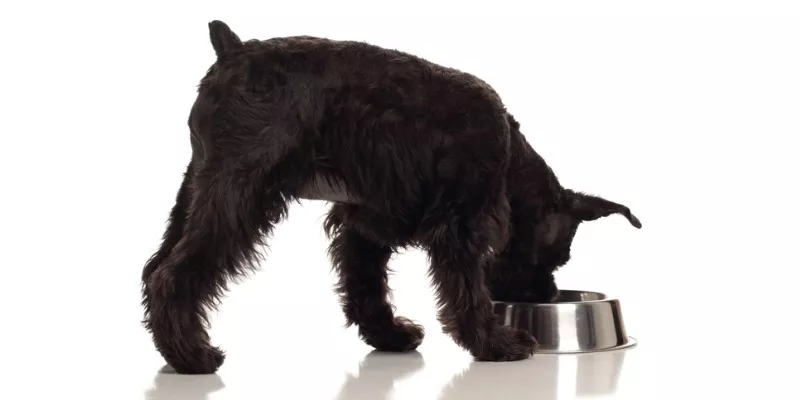
Are you asking yourself: ‘What happens if my dog eats road salt?’ When the snow starts to melt, it can cause havoc for not only us but our pets too. The salt we use to protect us from slipping could be dangerous for your pet. The last thing you want is for your furry friend to become unwell.
Discover the signs to look for and how to protect your pet this winter.
What is Road Salt & What Happens if Your Dog Eats it?
Road salt (sodium chloride) is a de-icing chemical used for maintaining roads and paths in places where heavy snow or ice is expected.
Prolonged use of road salt can affect your landscape and driveways, as well as being harmful to your pets. An array of health issues can arise if your pet consumes too much road salt.
Why is Road Salt Dangerous for Your Dog?
Walking on the small salt rocks can cause paw irritation, even more so on dry, cracked paws. A dog may also ingest the salt out of curiosity or lick it off of their paws later.
Chemicals such as sodium chloride, potassium chloride and magnesium chloride are found in road salt. These chemicals are detrimental to your dog’s health if ingested.
Signs that Your Dog Ate Road Salt
If your dog ate a little bit of salt, they might develop vomiting, an upset stomach and dehydration. In most cases, this is not fatal. Make sure your dog has lots of water on hand to get them back on track.
If your dog eats a lot of salt, especially for their size, they may experience more serious effects like depression, tremors, seizures and even blood flow problems.
Other side effects to look out for are increased urination, body and muscle weakness, neurological issues, high fever, and a lack of energy.
If your dog experiences any of these symptoms, make sure you seek help from a veterinarian.
Preventative Measures You Can Take
- Invest in some doggy boots to protect your dog from getting snow, (and rock salt remnants), lodged between their paws.
- Clean all boots when you enter your home. Wash and dry your pet’s paws too.
- When out and about, keep a close eye on your pet to make sure they don’t have access to road salt.
- Do not allow them to drink from slush water or puddles.
- Stay away from heavily treated roads and sidewalks.
- After your walk, make sure you have lots of fresh, clean water on hand to prevent your dog from becoming dehydrated.
- Use pet-friendly de-icers on your own property.
Be vigilant with your pets and take precautions to make sure everyone can enjoy the outdoors.
Contact Lane’s Landscaping Supplies for your road salt and all things landscaping in the Mississauga area.


